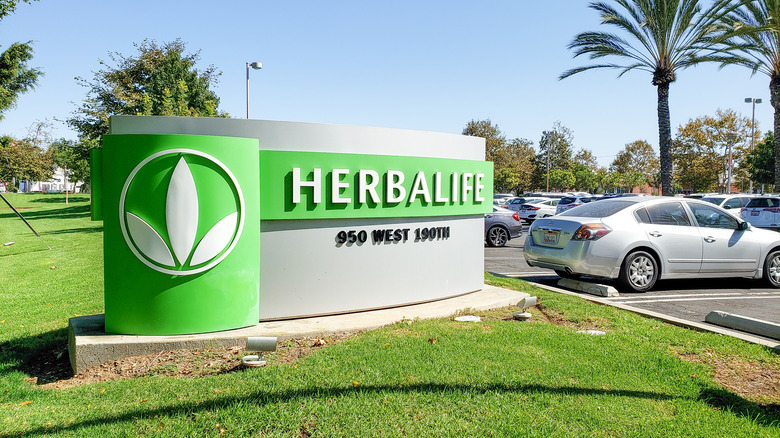How To Know If You're Part Of A Pyramid Scheme
So you've just heard about a great business opportunity from a friend. The work sounds easy. The financial rewards are high. Unfortunately, if the proposition sounds too good to be true, it probably is, because you may have just been invited to take part in a pyramid scheme.
The New York attorney general's office has a straightforward definition for what this type of investment fraud is: a way to make money "based on recruiting an ever-increasing number of 'investors.'" In a pyramid scheme, a handful of people will need to get more people to attract investors, who will also, in turn, need to bring in even more fee-paying participants, since that's how earlier-stage investors make their money back to begin with.
The reason this fraudulent practice is called a "pyramid," is because there are few people at the top, whose incomes are being enriched with the money contributed by an ever-widening base at the bottom.
Pyramid schemes and multi-level marketing firms share similar qualities
Do pyramid schemes involve a sale or exchange of goods and services? The answer is it depends, since a number of multi-level marketing (MLM) companies, such as Herbalife or NuSkin, per CNN, operate on the same pyramid-style premise. As explained by the New York attorney general's office, in order to be a part of the MLM company, one person might recruit a few others, who, in turn, will recruit a few more — all of whom need to first pay a fee in order to be part of the system, and who will then need more money to get access to the goods that are to be sold.
Consumer rights advocate Robert Fitzpatrick tells The Atlantic, "In 18 years, I have never met one person in MLM who earned a sustainable profit without recruiting. The reward is dependent on the recruiting. You have to move up to have access to the reward. Therefore, you can't make money without recruiting."
To remove any ambiguity, the Federal Trade Commission says the best way to tell the difference between a legitimate multi-level marketing company and a pyramid scheme is to look at how you are compensated: If the pay you receive is based on the amount of commission you earn selling a product and not by the number of recruits you bring in, then the company is legit.
Sniffing out a potential pyramid scheme
There are other ways to find out if the company that's offered you a gig is legit, too. The Securities and Exchange Commission warns that pyramid schemes that constitute investment fraud can be relatively easy to spot because they share several characteristics. Pyramid schemes don't actually involve the sale of any tangible product or service, and they offer high returns in a relatively quick period of time.
Pyramid scheme companies promise to provide recruits with easy work, and that income can be made by doing little to nothing. A pyramid scheme masquerading as a company has what the SEC calls a "complex commission structure," which means the company will not be able to tell you clearly how you are to make your income. Most importantly, you can make no money unless you bring more people into the program.
The New York attorney general's office also provides a list of tips that can keep you from getting defrauded. It recommends you do due diligence on the company that is recruiting you, on the product or service it is selling, and whether the fee for joining is substantial. Perhaps most importantly, it advises you not to get involved in a business just because a friend or family member is in it, because they may have been misled, as you could be, too, if you're not careful.


